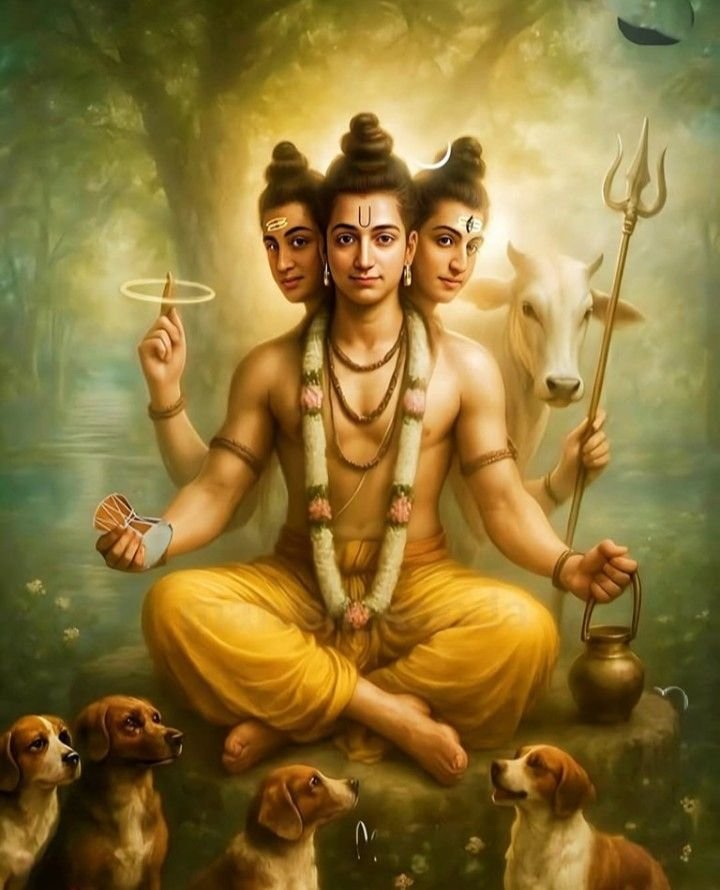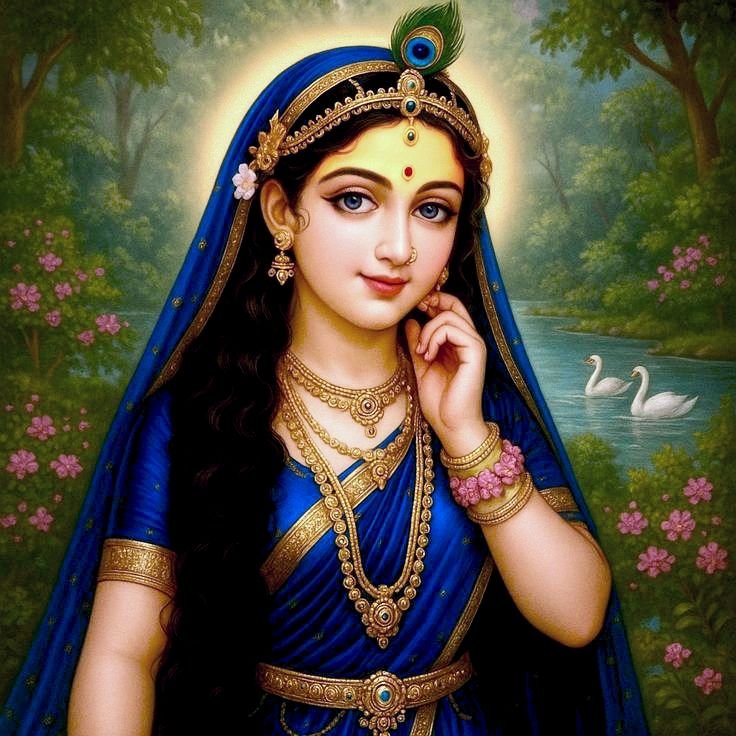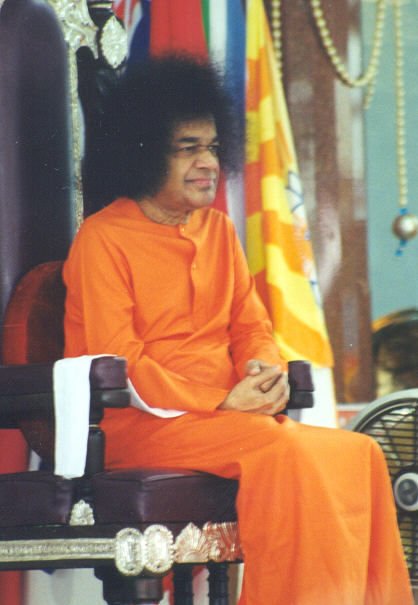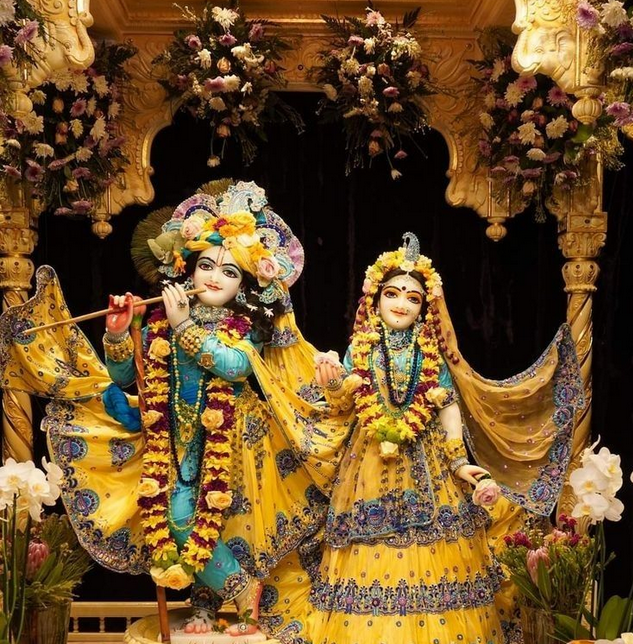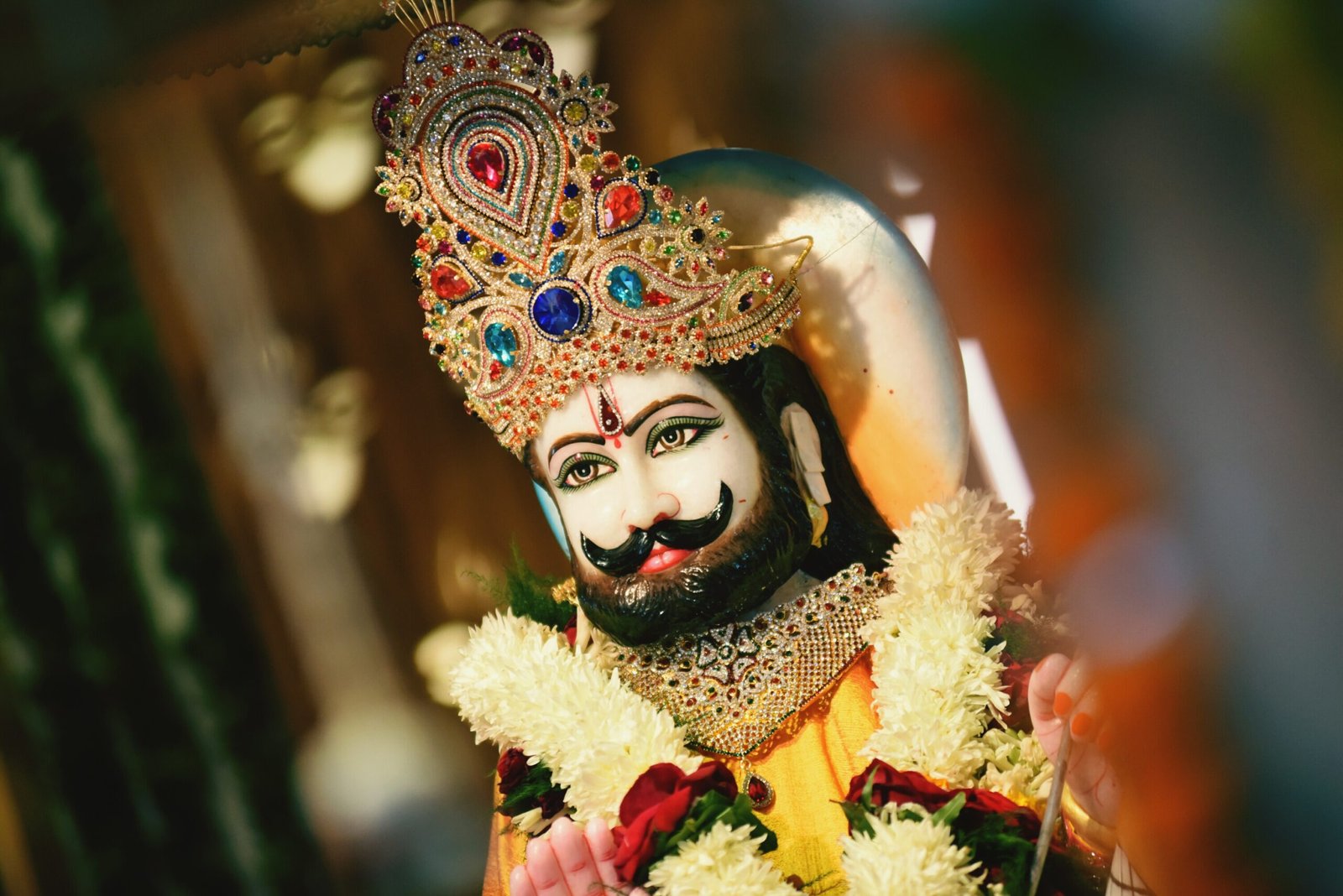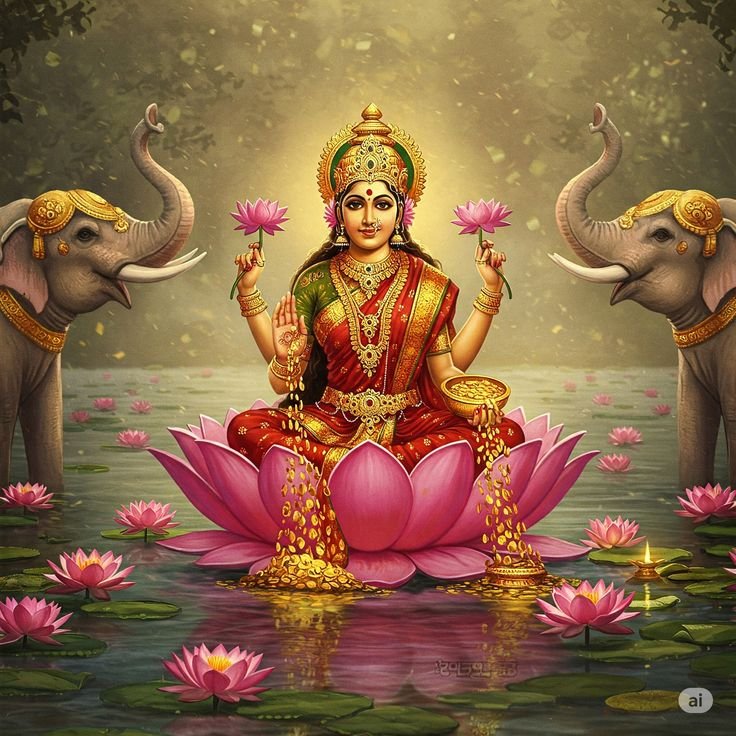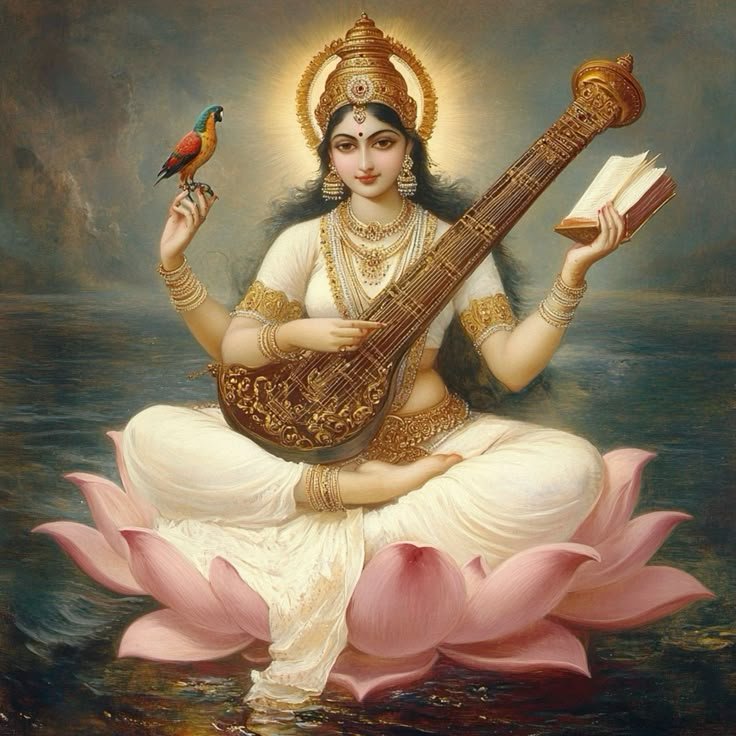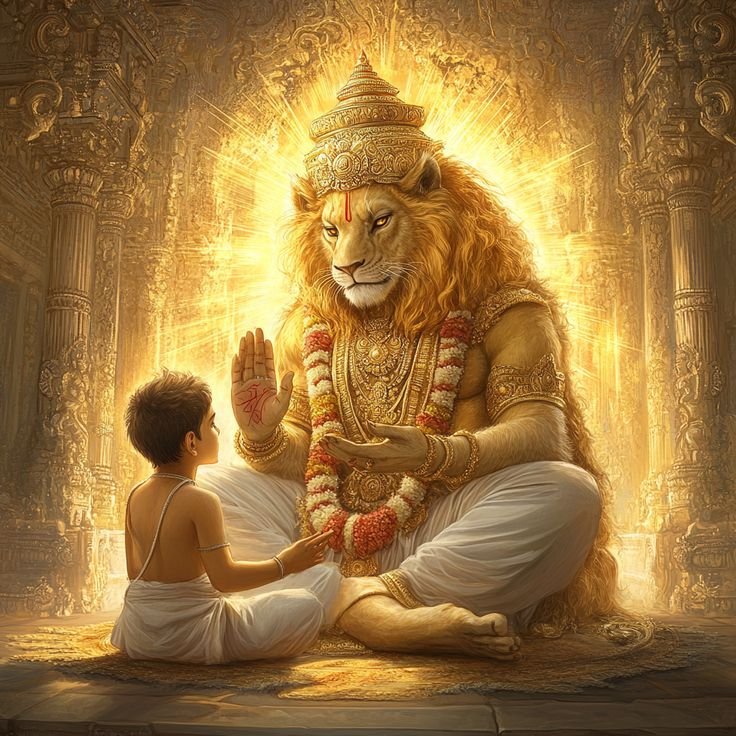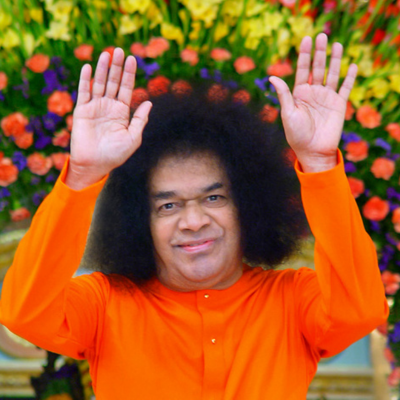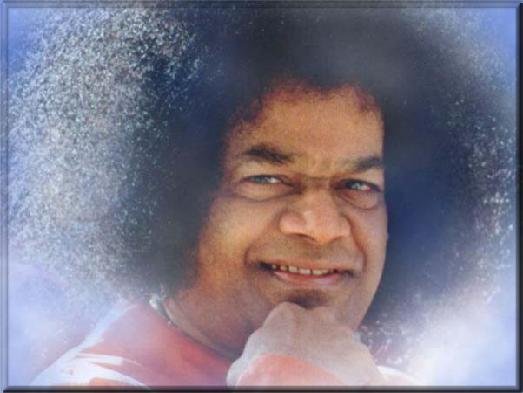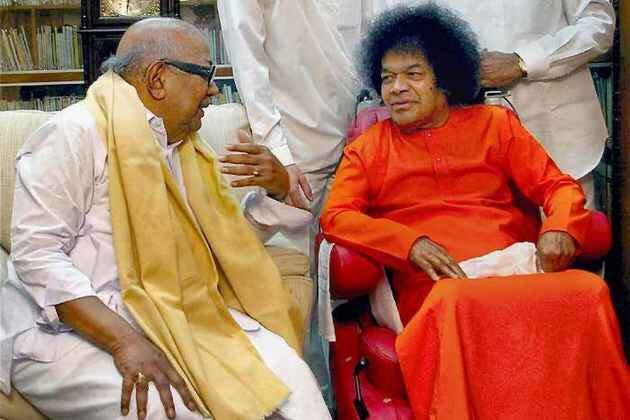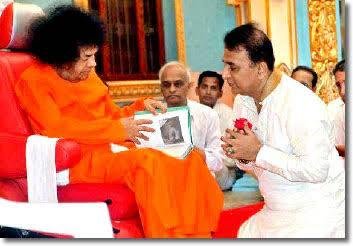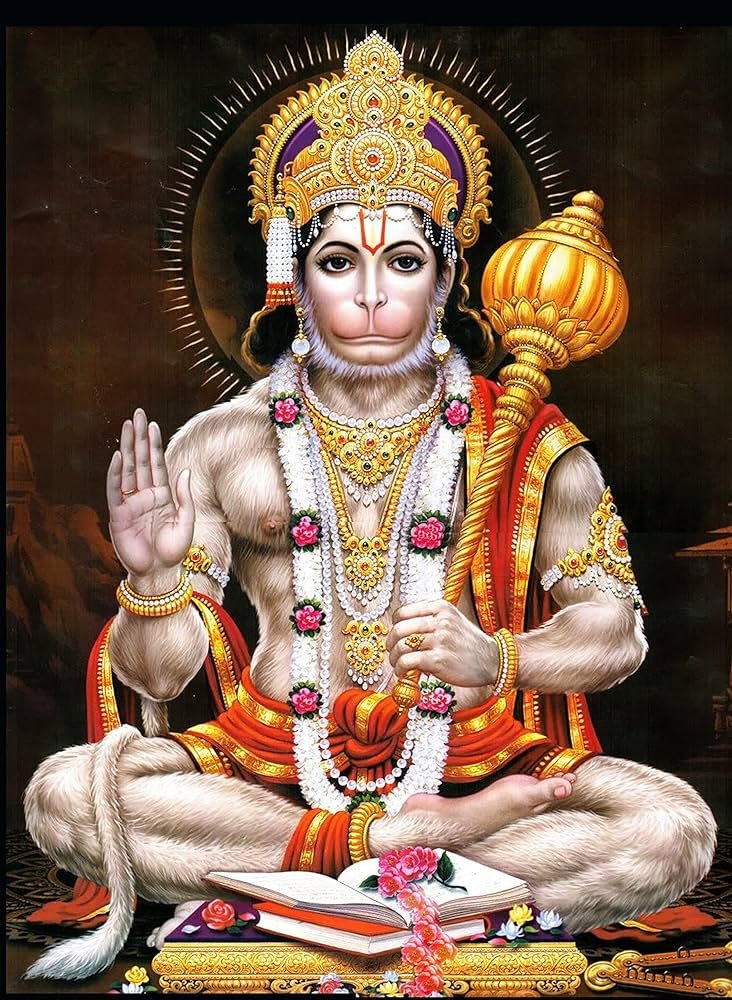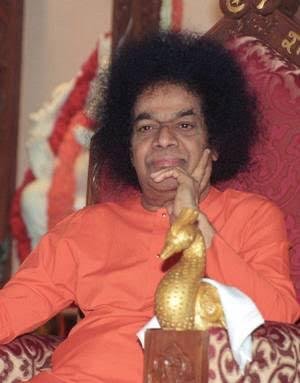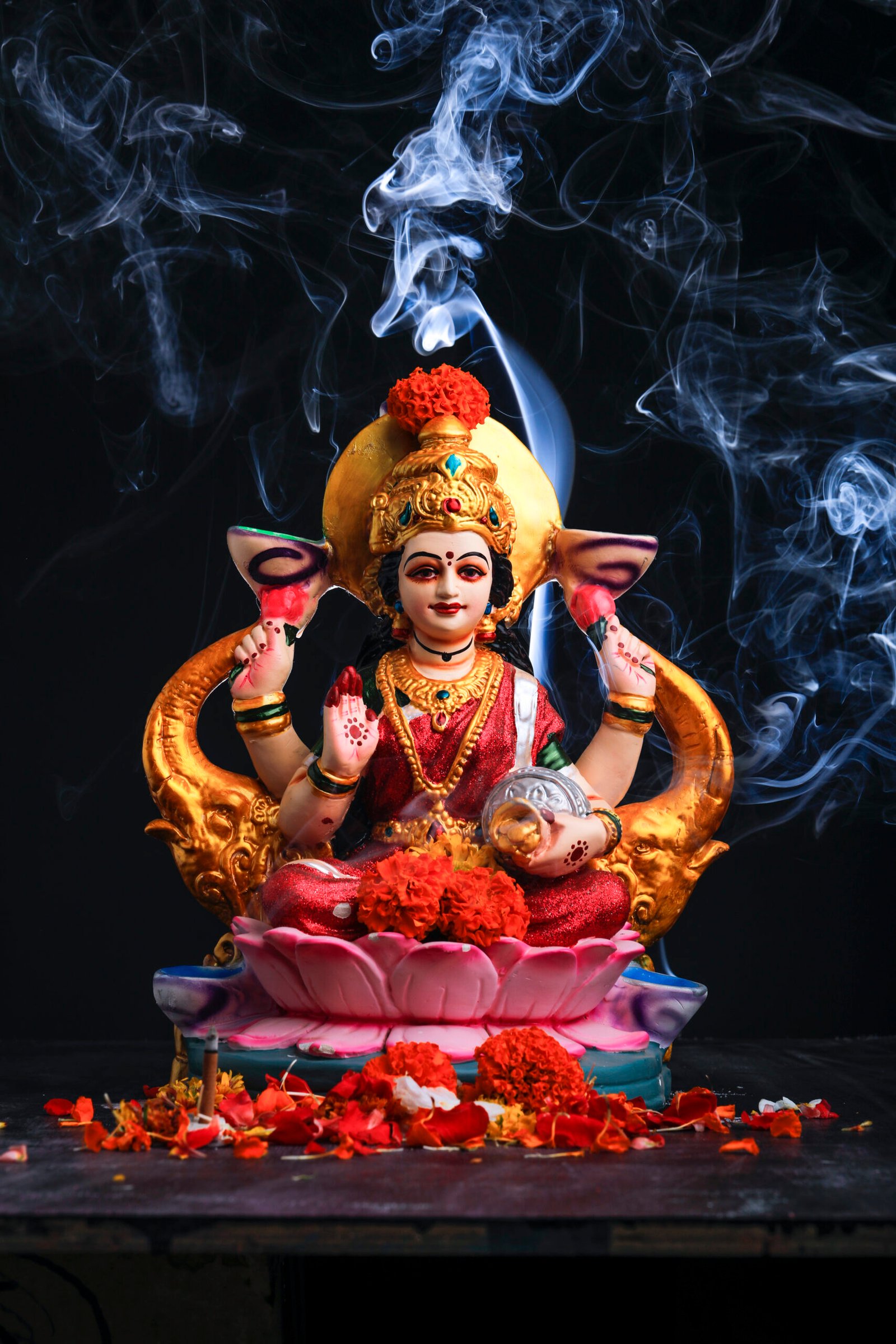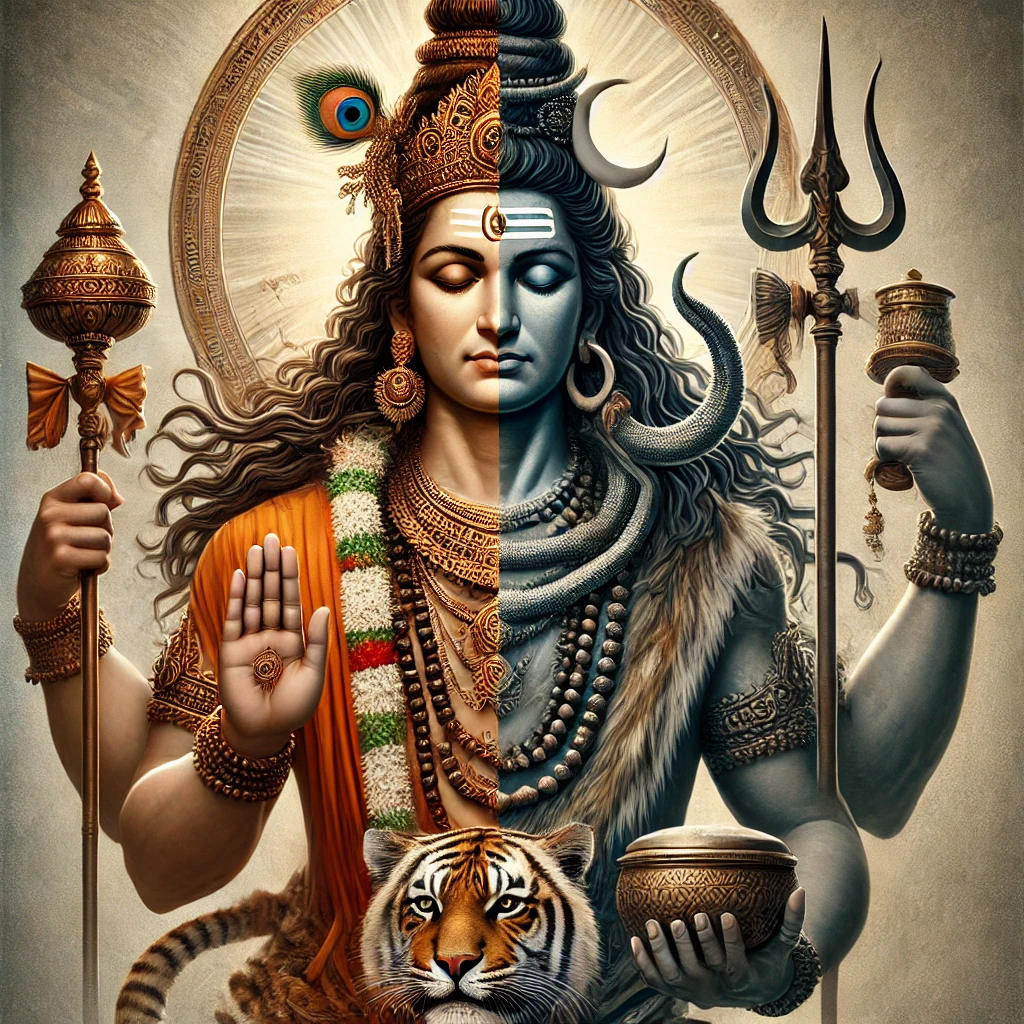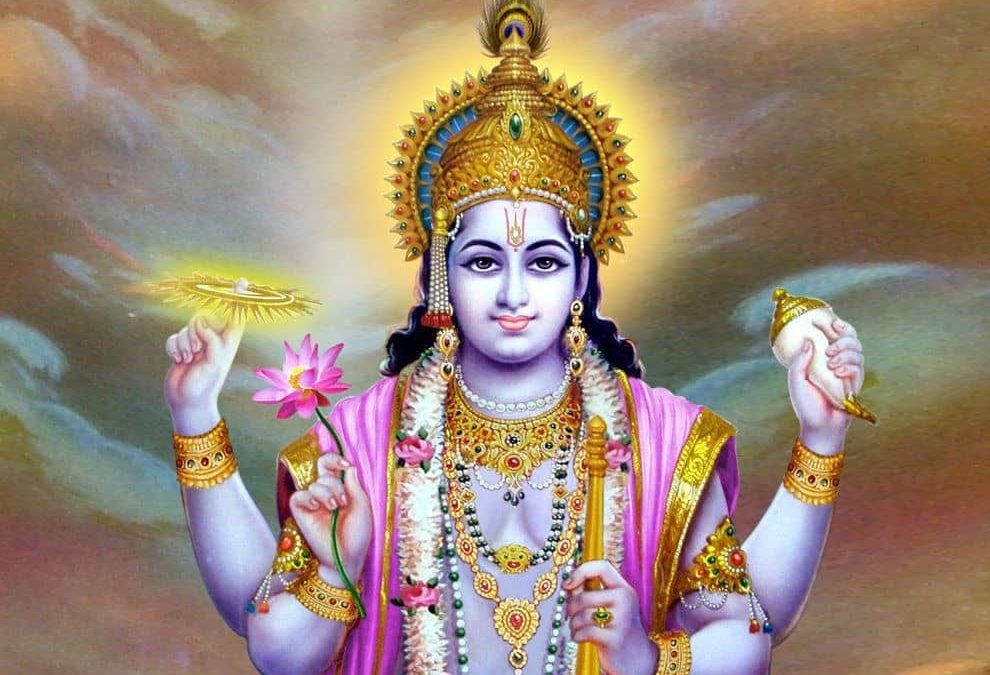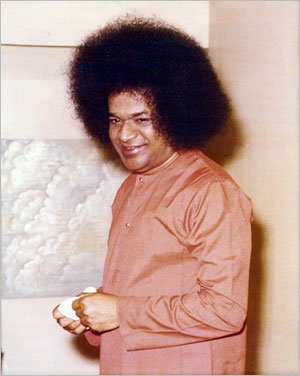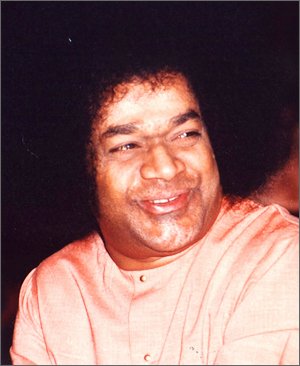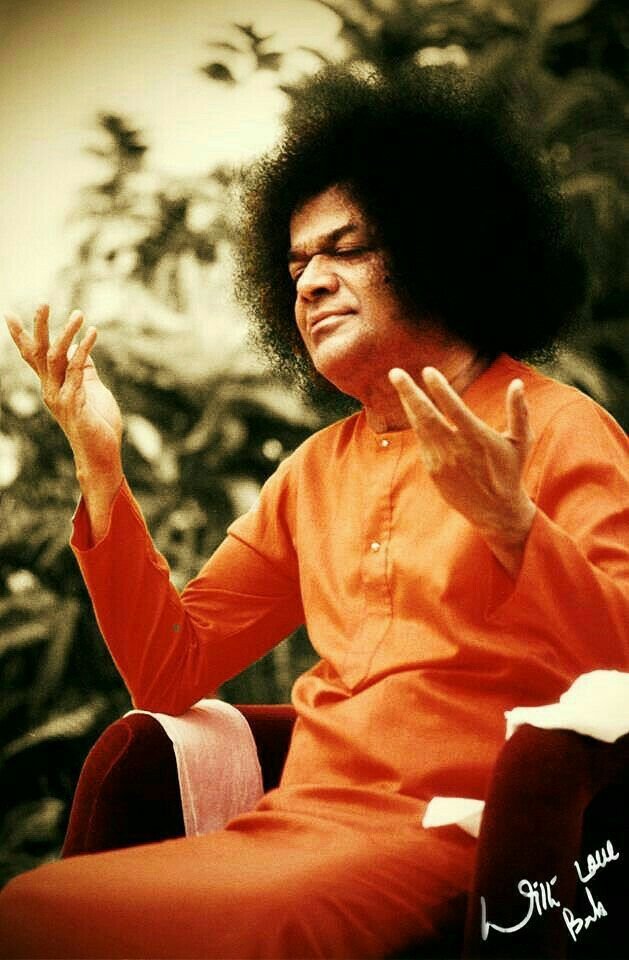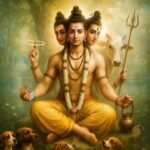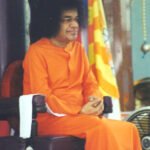CONVERSATIONS WITH SAI – PART Twenty Two
CONVERSATIONS WITH SAI – PART Twenty Two

H: Some say it is necessary to mortify the body to overcome the tendencies?
SAI: Some spiritual aspirants do tapas and various austerities that torture and weaken the body. This is wrong. If there is a healthy body, this is the basis for healthy thoughts.
H: One’s tendencies are there for a long time. Despite oneself, they come up again and again.
SAI: There is the sun, the magnifying glass, and the paper. God is the sun, far away. The heart is the glass. The desire and tendencies, the paper. If the glass is just right, the paper is burned at once. If the heart has strong love for God, and faith in Him, the glass is automatically right.
THE SENSE OF TASTE
H: One very strong tendency is in the tongue, the problem of taste, which gives rise to craving for more. How to overcome that?
SAI: The body is like a boil. Water is for cleansing the wound. Food is the medicine. Clothing is the bandage. Considering the body so, reduces the strength of taste. But what is taken in by seeing, hearing, talking, is the more important food. Gross food for the body is like digging a well. Whereas pure, subtle impressions taken in by the other senses is like building a wall high into the heavens. It is building the wall high that should have the major emphasis.
THE BODY AS THE TEMPLE OF GOD
H: Body is like a boil. But Swami often uses the phrase, ‘the body is the temple of God’.
SAI: In the spiritual world there is a different arithmetic. 3-1=1. There is you, the mirror, and the image. Remove the mirror, and there is only one left. Life is the mirror, body is the reflection. Be attached to God, and there is only One, God. The body is the temple of God.
The life of the person is the priest. The five senses are the vessels used in the religious ceremony. Atma is God, the idol of God. One cannot say that the body is the temple of God unless it is. Every act, thought, and word should be worship in the temple. The five senses should constantly be cleansed and polished, so that the worship is reverently offered to God. One goes to the office and says to himself that every act of the day should be the worship of God, and it will be so.
H: Swami says that when the senses leave their place and mix with worldly objects pain and pleasure are produced. What is the proper place of the senses?
SAI: It is all the play of desire. Desire for worldly objects produces pleasure and pain, whereas desire for God confers bliss and does not produce pain.

| THE RIGHT EXPRESSION OF DESIREH: But Swami, most of our actions arise from worldly desires. We see, hear, think, feel, smell. Then there is some desire and that leads to action.SAI: God works through you as desire.H: Swami! Does God prompt even the bad desire?SAI: There is the strong thrust of the life force, the desire to live. If it goes into action in a favourable field, it becomes love; otherwise, it remains as desire. If desire is expressed in a favourable field, it is expressed as love. Then knowledge and bliss arise. |
The force, the strength, the energy, and the motivation in desire is God. Whether the desire is good or bad is related to time, place, and person. In early years, a desire for worldly achievement might be good. In later years, the same desire might be bad. Fruit, good one day may be rotten several days later. One side of an apple may become good, the other side rotten. Discrimination says eat the good side and discard the bad.
There is another force in you through which God works, and that is discrimination. That force must be used to put aside wrong action. The power of discrimination knows what is right and what is wrong. The wrong desire is God overshadowed by Maya. Whereas discrimination is God less overshadowed by Maya.
H: Swami! This really explains the whole problem of good and evil?
SAI: Yes. The story of Valmiki is an illustration. He was a ruthless killer and robber without any doubt about his actions. He, at one time, listened to the five sages and started repeating ‘Ram’. The same strength and force that made him a terrible criminal was turned to Godly desire and action, and he gained God-realization. Valmiki started to repeat ‘Rama’ and, gaining speed ‘Rama’ became jumbled up with ‘Ma’ and ‘Mara’. In this he lost body sense and transcended the senses. Losing body sense should be like that, natural and not forced.
H: Swami says that body, mind, intelligence do not work for anybody, that they do their own work. What does that mean?
SAI: What is meant is, ‘unfortunately, that is the case’. They are doing their own work, but the work should be co-ordinated for the benefit of the igher. For example, the eyes see. Seeing is their work. But unless they see for somebody there is no point in their work. The mind should be seeing through the eyes. The intelligence should be directing and controlling the mind, for that is the intelligence’s own work.
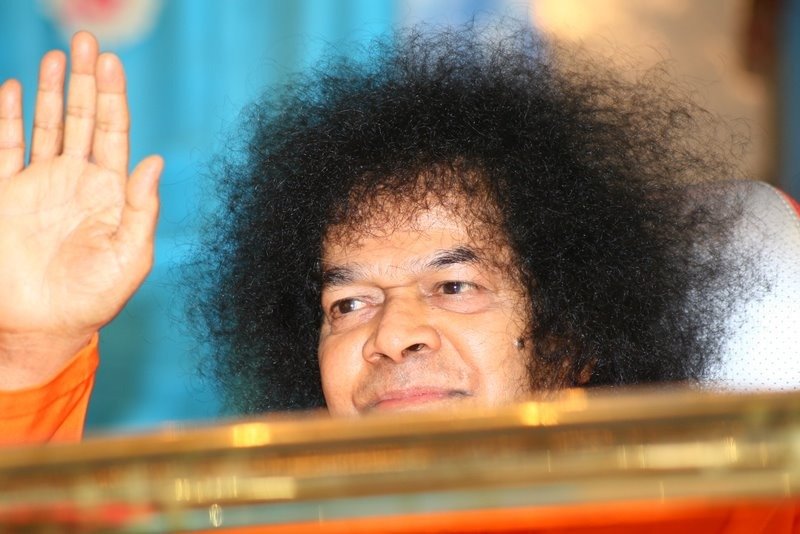
H: Then, for whom should the entire mechanism be functioning?
SAI: For the Atma. A small example: the earth turns on its own axis, but at the same time it is revolving around the sun. The various faculties of man should do their own work, but the Atma is the centre of their universe.
H: There seems to be something wrong. The Atma is not doing its work of directing the faculties. How can one bring the faculties under the control of the Atma?
THE MEANING OF SURRENDER
SAI: When one realizes that the Atma is the reality, everything will function very smoothly. It is a question of surrendering all to the Atma.
H: But Swami has said that one cannot surrender that which he really does not own and of which he is not in control.
SAI: It is not a question of surrendering or giving to someone else. One surrenders to himself. Recognition that the Atma is oneself is surrender. Surrender really means the realization that all is God, that there is nobody who surrenders, that there is nothing to be surrendered, nor is there anyone to accept a surrender. All is God. There is only God.
H: ‘Surrender’ is not really a very good word. It quite fails to convey what is meant.
SAI: ‘Surrender’ is worldly language. To correctly
describe this, the language of the divine is needed. There is no adequate word in the English language, therefore the use of ‘surrender’ goes on.
CONTEMPLATION ON THE FORM OF GOD
H: When Swami says, ‘The form of the Lord’, what does He mean? That is, when I think of the Lord, the image of Baba comes to mind and that is only natural. But beyond that, what?
SAI: If you continue to visualize the Form when you are engaged in activity, you will make mistakes. For instance, if you try to visualize the Lord when you are working in the office, you make mistakes. So, when engaged in action, ‘Visualizing the Lord’ means doing the work in God’s Name, and not doing the work to gain the fruit of the work.
H: Well, then about the Name, repeating the Name?
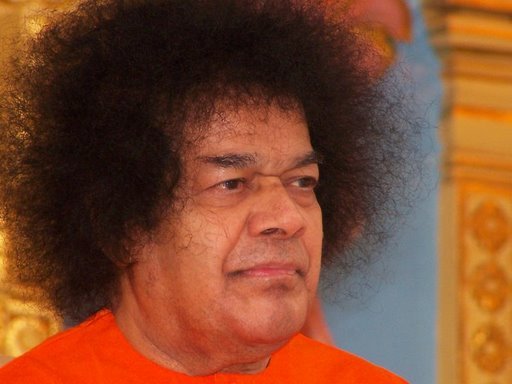
| H: Swami says that people make a mistake by not saying ‘Sohum’ with every breath. How does one do it?SAI: ‘Saa’ is He. ‘Hum’ is I. Yogi ‘X’ whom you mentioned, teaches to say, ‘Saa, Saa’ 24 hours each day. Since ‘Hum’ is not said, the ‘I’, the personality, is supposed to subside. It is extremely difficult to do it 24 hours a day, and in sleep it is almost impossible. Yogi ‘X’ says he does it, but he does not. What is the use of struggling with a very difficult practice like that, when there is an easier, more effective may?Well, Swami, putting Yogi ‘X’ aside. I want to do as Baba says, and say ‘Sohum’ with every breath. What is the technique? Is it said with each breath?SAI: The breath is always saying ‘Sohum’. The practice is to say ‘So’ with every in-breath, and ‘Hum’ with the outbreath. Say it in thought. It is intended to keep the mind fixed and quiet. After a while it becomes automatic. During the day say ‘Sohum’. At night, during sleep, the sound naturally changes to OM. |
H: Should one think, ‘He am I’?
SAI: No. The sound is ‘Sohum’. It is not an Indian word or an American word. It is the sound of what the breath is saying. Of course, it is all right to appreciate the meaning of the sound.
H: Swami says that ‘Sohum’ is the natural sound of breath. Listening to my breath, it does not seem to me that I hear the sound of breath in that way.
SAI: The sound through the nose and mouth are mixed with mind or idea, and may be heard in various ways. The fact is that when the mind is without movement and the breath is perfectly spontaneous and natural, the sound of that breath (through the nostrils) is ‘Sohum’. Breath through the mouth goes into the stomach.
H: Krishna told Arjuna to sound OM in the mind.
SAI: OM is in every place, mind, tongue, heart etc. First sound OM on the tongue and then in the mind. The sounding of OM 21 times is important; five outer senses, five inner senses, five lives (the five elements), five sheaths (the kosas), and the Jiva.
CONVERSATIONS WITH SAI – PART Twenty Three
A Visitor: How to surrender to God and to life?
SAI: Surrender to God and to life means the absence of duality and being of the same nature as God. But such a state is beyond man’s will. Surrender is when doer, deed, and object are all God. It cannot be forced. It comes naturally to a heart filled with love for God. God is as a spring of fresh and sweet water in the heart. The best tool to dig a well to that inexhaustible source and savour its sweetness is Japa, the repetition of the Name of the Lord. Dedicate every action to the Lord and there will be no place for ego. That is the quickest way for the ego to subside.
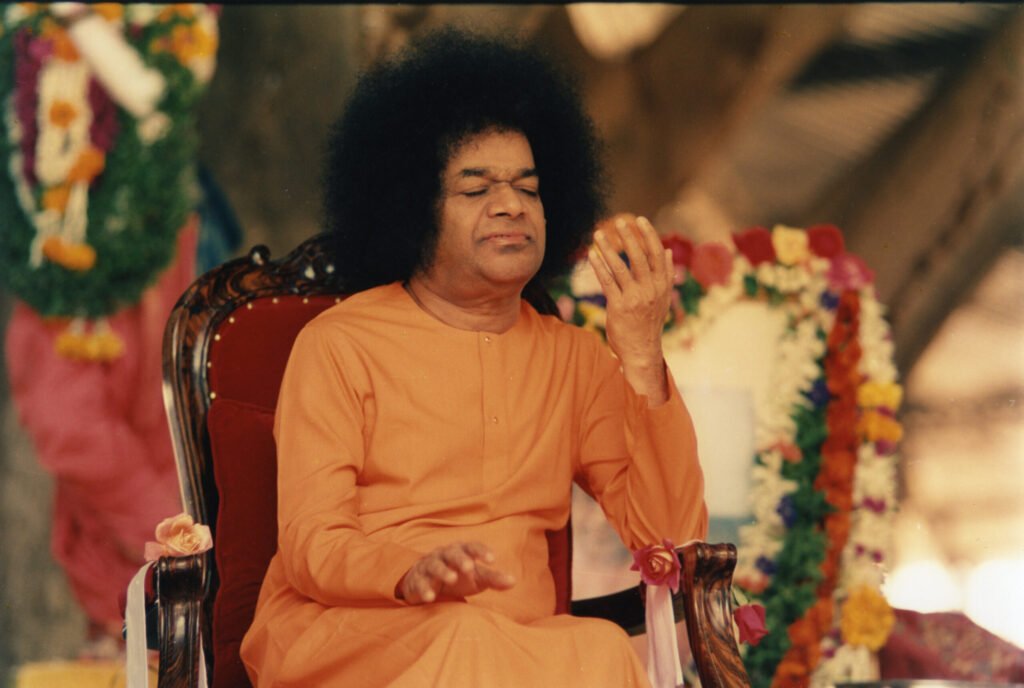
A Visitor: How to progress fast on the path?
SAI: Love is the path. Start the day with love. Spend the day with love. Fill the day with love. End the day with love. This is the way to God. Expansion is love, not contraction and selfishness, not ‘my’. Such practices as meditation, Japa, mantra and bhajan are like soap. Without water, soap is not of use. The water is likened to love. It is the water that is important. Without love you live in death. Love is life. All are one; be alike to every one.
Inquiry is of great importance. Who am I? Body? No. House? No. I am ‘I’; that is the truth. The body is like a water bubble. The mind is like a mad monkey. The mind is worse, it has no reason and season; even a monkey has this.
A Visitor: Is it all right to say ‘Sai Ram’?
SAI: Sa’ means divine. ‘Ai’ means mother. ‘Ram’ means ’He who is in the heart as pure delight’. ‘Sai Ram’ means Divine Mother and Father. Sohum, Sai Ram, Sivohum, Sambasiva, all mean the same.
EXPAND YOUR HEART
A Visitor: Baba, I am so tired. I am without energy. How may I get energy?
SAI: Energy arises from surrender to God.
A Visitor: Would it be all right for me to go for a reading from the book of Bhrighu?
SAI: That is not Swami’s business whether you go or not. What is written is true, but the interpretation is faulty.
A Visitor: Baba, my energy?
SAI: Energy comes from the heart expanding. A small, closed heart – no energy. If Baba is known in the heart, then the heart expands. Body is the temple, the heart is the seat; God is installed there.
A Visitor: Are you satisfied?
SAI: I am always happy. Love is my form. Always happy – sometimes to correct a situation, the sound of Swami’s voice may change, but inside there is no anger.

H: (Hislop) Swami, excuse me. A person observing Swami moving amongst people, and choosing some of them for special attention or interview, is puzzled why some are chosen and why some are not.
SAI: Yes, it is quite natural that you are puzzled. One looking from the outside cannot know who is worthy and who is not.
H: Swami says that one should not speak of the Lord with those who are not devotees. What are the implications?
SAI: It is all right to speak to groups. The leaders will become interested and they, in turn, will tell their followers. But to engage in individual private conversations with those who have no faith will just result in argument and discussion and will be a waste of time.
H: Each devotee is so anxious to touch Swami’s Feet. What is the meaning of touching the Feet?
SAI: God is positive. Man is negative. If contact is made, the divine current flows from positive to negative. For this reason, the Indians have the tradition of touching a divine person. But without some form of discipline and limitation, people would be touching the face and body. Hence, the custom of touching the lotus Feet.
H: Swami says, ‘keep water out of the boat’. How is that done?
SAI: How can one keep water out of the boat of one’s life? Turn fully to God and there is no boat, no boat is needed, God is in every place. The connection to Him is inside, in the heart.
SADHANA AND LIBERATION
H: Must a certain length of time pass before liberation?
SAI: The time needed for liberation is like this. Somebody asks, ‘How long do you need to eat?’ The answer may be, ‘Five minutes to half an hour.’ It is wrong answer. It will take as long to eat as needed to fill the stomach.
H: Is there naturally a desire for liberation in man?
| SAI: Sadhana does not bring liberation. It only calms and controls the rajasic and thamasic gunas. The Sathwic guna has always the liberation desire. When the Sathwic guna in man is in control, liberation comes.H: In the West, sadhana is generally taken to be a process of self-improvement. But that implies identification with the changing personality?SAI: First there may be the urge for self-improvement. Moral nature and character may be seen to need improvement. But the next stage is inquiry. Inquiry into the reality of this and that. Seven tenths (7/10) of sadhana is inquiry. ‘I’ as generally used by people, refers to the body.H: Mahayana Buddhism says that one has the choice to merge or not, even at the last moment before final liberation.SAI: The choice of merging or of rebirth upon the dawn of freedom rests with the wish. There is no selfishness in the wish to merge in God. It is not contraction, it is expansion |
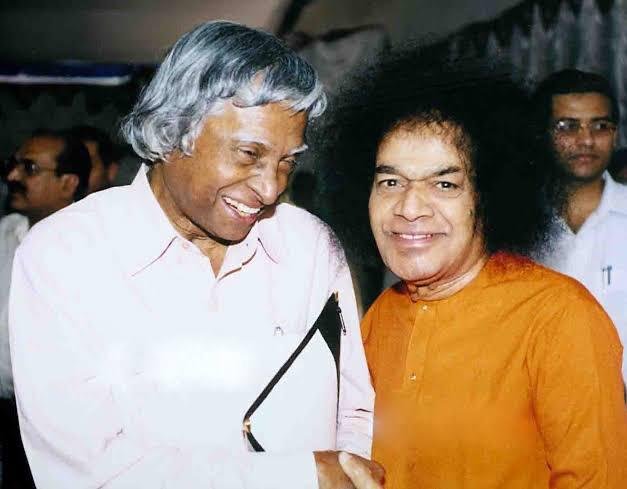
In the following conversation a visitor, a prince from another state of India, came to Bhagavan, and offered some acres of land for a yoga centre. He asked that Bhagavan please visit his state and use His will to avert the danger of political violence.
SAI: (to the visitor) Swami’s love is the same for all, even for those who engage in bad actions. These suffer not because of Swami’s anger, but because only through suffering do their minds turn inward in self-inquiry. And only through self-inquiry will they be free of the illusion that separates them from God.
The only gift acceptable to Swami is the heart. Acres of land are of no interest to Him. Presently, there is great disorder amongst both politicians and students. This will continue for a time, but at a certain point Swami will step in and bring about so me order.
H: How about order in America and Europe?
SAI: Countries are like carriages. The engine is God. The first carriage is India. The other carriages will follow. According to the astrology of ancient times, the change in world conditions to be brought by Swami’s influence will come in about 15 years (this conversation was in December 1968). This was predicted 5600 years ago in the Upanishads. The coming of Baba, the Sai Avathar, which includes the three incarnations, is all forecast quite clearly. People born in this present generation may consider themselves quite fortunate.


